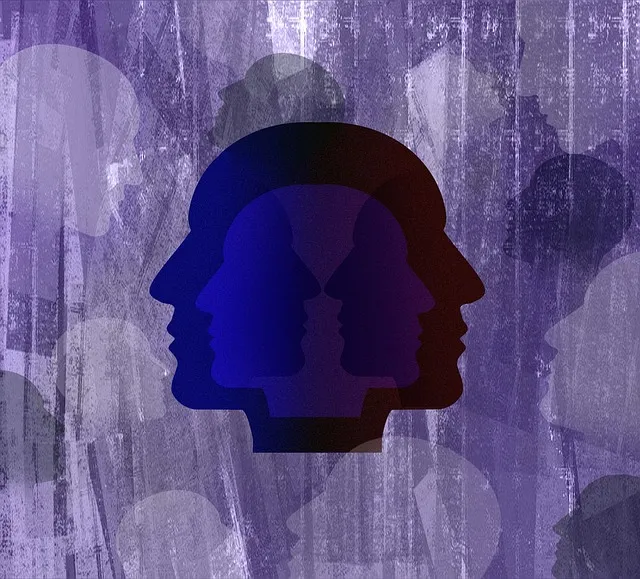The Kaiser Permanente mental health center in Superior offers specialized programs focusing on enhancing social skills for individuals with various mental health conditions. Through evidence-based techniques, cultural competency, and personalized guidance, such as Mental Wellness Journaling Exercise, therapists equip clients with confidence to navigate interactions. This holistic approach, emphasizing emotional intelligence and resilience building, improves quality of life, fosters healthy relationships, and promotes overall mental wellness, making Kaiser Permanente a leader in superior mental health care.
Social skills training is a powerful tool for individuals navigating mental health conditions, offering a path to enhanced well-being and improved daily interactions. This article explores how programs like those provided by the Kaiser Permanente Mental Health Center in Superior can transform lives. We delve into the impact of mental health on social abilities, highlighting key skills for development and effective training strategies. Real-world success stories from within the community showcase the transformative power of such initiatives.
- Understanding the Impact of Mental Health Conditions on Social Interactions
- The Role of Kaiser Permanente Mental Health Center in Skill Development
- Identifying Key Social Skills for Improvement
- Strategies and Techniques for Effective Training Programs
- Real-World Application and Success Stories from Superior Communities
Understanding the Impact of Mental Health Conditions on Social Interactions

Mental health conditions can significantly influence an individual’s social interactions and overall ability to connect with others. The impact varies widely depending on the specific disorder; for instance, those dealing with anxiety disorders might experience intense fear in social settings, while depression can make it challenging to initiate or sustain conversations. At the superior Kaiser Permanente mental health center, professionals recognize these hurdles and emphasize the importance of addressing social skills as a crucial component of holistic treatment.
Social skills training becomes an essential tool within the framework of comprehensive care, offering individuals practical strategies to navigate interactions with confidence. The approach often incorporates evidence-based techniques from healthcare providers, who are increasingly integrating cultural competency training into their practices. By fostering a deeper understanding of diverse perspectives, this training enables mental health professionals to provide more personalized support, ensuring that treatment resonates with each client’s unique cultural background and enhances their journey towards mental wellness, even through simple activities like Mental Wellness Journaling Exercise Guidance.
The Role of Kaiser Permanente Mental Health Center in Skill Development

The Kaiser Permanente Mental Health Center plays a pivotal role in empowering individuals with mental health conditions to develop essential social skills and build resilience. Through specialized programs tailored to address unique challenges, the center offers a supportive environment for learning and growth. Their expert therapists employ evidence-based practices and innovative techniques to enhance emotional intelligence, fostering effective communication and healthy relationships.
By focusing on Resilience Building and Emotional Well-being Promotion, Kaiser Permanente equips individuals with practical tools to navigate social interactions successfully. These strategies not only improve overall mental health but also enable clients to cultivate a deeper sense of belonging and purpose in their communities. The center’s commitment to excellence ensures that participants gain the confidence needed to engage in meaningful social activities, leading to improved quality of life.
Identifying Key Social Skills for Improvement

At a Kaiser Permanente mental health center, superior social skills training is recognized as a cornerstone of comprehensive patient care. Identifying key skills for improvement involves a nuanced understanding of each individual’s unique challenges and strengths. This process typically focuses on communication, empathy, active listening, and conflict resolution – essential tools for fostering meaningful connections and navigating interpersonal interactions effectively.
Emotional intelligence plays a pivotal role in these training programs, emphasizing the importance of self-awareness, self-regulation, and social awareness. Through emotionally healing processes, mental health professionals learn to adapt their communication strategies based on situational demands, enhancing patient rapport and trust. Incorporating risk management planning into the curriculum ensures practitioners are equipped to handle challenging situations, promoting safe and supportive environments where patients can thrive.
Strategies and Techniques for Effective Training Programs

Effective social skills training for mental health conditions requires a multi-faceted approach that combines evidence-based strategies and tailored techniques. At Kaiser Permanente mental health centers, superior programs are designed to address specific needs, such as anxiety relief and stress management. Workshops focused on mindfulness meditation have proven particularly beneficial, offering participants practical tools to navigate social interactions with greater ease and confidence.
These programs often incorporate role-playing scenarios, group discussions, and cognitive-behavioral techniques to foster a supportive environment where individuals can safely practice and enhance their social skills. By combining theoretical knowledge with hands-on experience, the Superior mental health center’s training initiatives equip participants with the necessary resources to manage stress, reduce anxiety, and improve overall well-being in both personal and professional settings.
Real-World Application and Success Stories from Superior Communities

In real-world settings, social skills training has shown remarkable effectiveness in improving outcomes for individuals facing mental health challenges, particularly at esteemed institutions like the Kaiser Permanente mental health center in Superior. These programs are tailored to address specific needs within communities, fostering a supportive environment where participants can practice and develop essential social competencies. Through interactive workshops and guided exercises, individuals learn effective communication strategies, conflict resolution techniques, and emotional regulation skills, all of which are crucial for navigating daily interactions and maintaining mental wellness.
Success stories from Superior communities highlight the positive impact of these training programs. Many participants report improved self-confidence in social situations, better management of anxiety and depression symptoms, and enhanced relationships with peers and family members. One notable example involves a young adult who struggled with social anxiety, which significantly impacted their daily life. After completing a structured social skills training program, they became more adept at initiating conversations, managing feelings of nervousness, and resolving conflicts peacefully. This transformation not only improved their mental wellness but also opened doors to new opportunities in education and employment.
Social skills training plays a pivotal role in supporting individuals with mental health conditions, fostering better interactions and improved quality of life. The Kaiser Permanente mental health center has been at the forefront of this initiative, offering comprehensive programs that target specific social skills for enhancement. By understanding the unique challenges faced by those with mental health issues, these centers can tailor strategies that resonate with their audiences. Through real-world applications in Superior communities, it’s evident that such training programs not only equip individuals with practical tools but also lead to significant improvements in their social lives and overall well-being.






